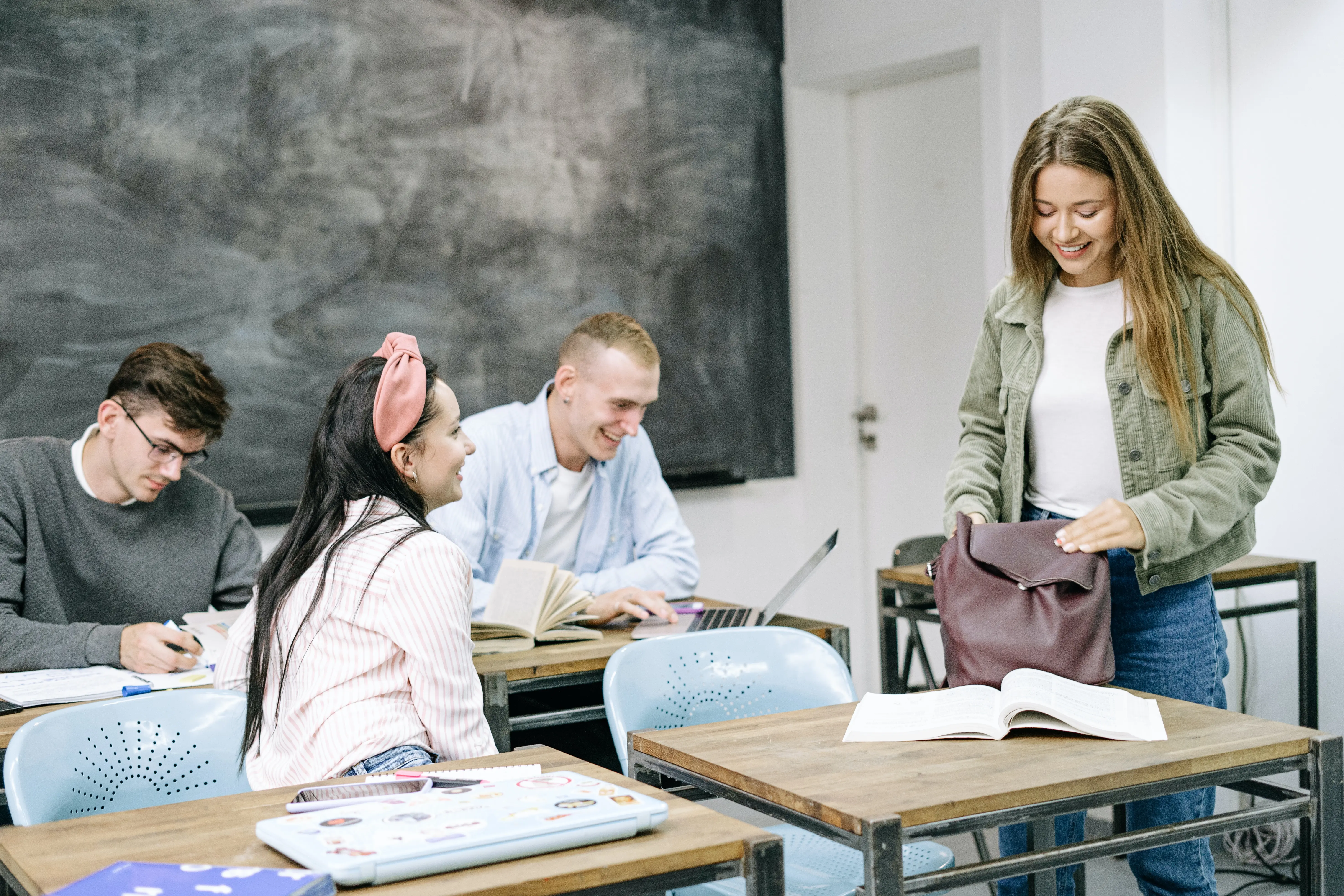
Secondary school
Share on social media:
After primary school, children attend secondary school. Secondary school consists of different levels and years. Children up to age 16, sometimes 18, are required to attend school. On this page you can read all about secondary school.
Cost of secondary school
Secondary school is largely free in the Netherlands. Parents do not pay money for lessons in regular secondary school. School materials, such as books and notebooks, do cost money. Also, in secondary school there are sometimes activities that cost money, such as school trips. If you do not have any money to pay for them, most schools have money to support these students. Ask your child's school if this is the case.
Education levels
In secondary school in the Netherlands, there are different levels. The secondary school uses the results of the Cito test and the advice of the primary school to determine the level of a student. The levels are:
VMBO (pre-vocational secondary education)
VMBO is for 4 years and provides a practice-based education. This means that students learn more by doing or making things. With a VMBO diploma you can go to MBO or, in some cases, to HAVO. Within VMBO there are different directions. The directions are: vocational-oriented learning path, middle management-oriented learning path, mixed learning path and theoretical learning path. Whereby the vocational-oriented learning path is most focused on practical learning and the theoretical learning path is most focused on learning from books.
HAVO (higher general secondary education)
HAVO takes 5 years and is more theoretical than VMBO. Students have to learn more independently and do more homework. With a HAVO diploma, students can go to HBO or, in some cases, to VWO.
VWO (preparatory academic education)
VWO is the most theoretical and lasts 6 years. With a VWO diploma you can go on to study at university.... There are two types of VWO: the Athenaeum and the Gymnasium. The main difference is that the gymnasium lessons are taught in Greek and Latin.
Secondary school lessons
The first one or two years of secondary school is called the transition class. During the transition class, everyone takes the same classes such as Dutch, English, Maths, History, Art classes and Sports. After the transition class, you take the compulsory classes, electives and a combination of classes that the pupil chooses. This combination of classes is called a profile.
The profile and electives a pupil chooses also determine what education you can pursue after secondary school. For example, if your child want to become a doctor, your child needs a secondary school diploma from VWO, with the profile Nature and Health and the elective Physics or the profile Nature and Engineering with the elective Biology. Your child's school can help with class choices.
Profiles in secondary school
Profiles in VMBO
In VMBO there are a total of 14 combinations of classes you can choose. Which combination you can choose depends on the school and curriculum you have chosen. Check with your child's school.
Profiles at HAVO and VWO levels
In HAVO and VWO you can choose 4 profiles.
Nature and Engineering
Required lessons: Mathematics, Physics and Chemistry
Nature and Health
Required lessons: Mathematics, Biology and Chemistry
Economics and Society
Required lessons: Mathematics, Economics and History
Culture and Society
Required lessons: Mathematics, History and a language class (not the compulsory languages Dutch and English)
School days and schedules
Students normally attend school 5 days a week, Monday through Friday. School hours may vary, but lessons usually begin in the morning and end in the afternoon. Students attend various lessons on a set schedule and are required to attend school. The schedule may change several times a year.
There are several holidays during the school year, such as the summer holidays, Christmas holiday and spring holiday. Children only do not have to go to school during school holidays, if they are sick or if they get time off for special days such as a wedding, funeral or feast and memorial day. You should always notify the school if your child is sick or ask the school if your child wants a special day off.
Exams and diplomas
To earn a diploma, students take secondary school exams. Each level has its own lessons and requirements for exams. There are two types of exams in secondary school:
School exams
These exams vary by school. Students take these exams starting in year 4 at secondary school.
Central final exams
These exams happen across the Netherlands and are the same for everyone. Students take these exams in the last year of secondary school. Together, they determine whether a student receives the secondary school diploma. After getting the diploma, students can continue studying at a level that suits them. The diploma is needed to do a vocational or scientific education or to find work.
Parent involvement
Parents are asked to be involved in their children's education. For example, you attend parent evenings. These are meetings with the teacher and parents to discuss how the child is doing at school.